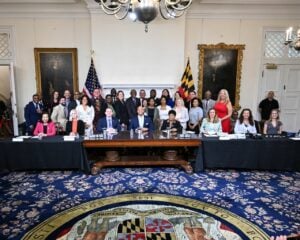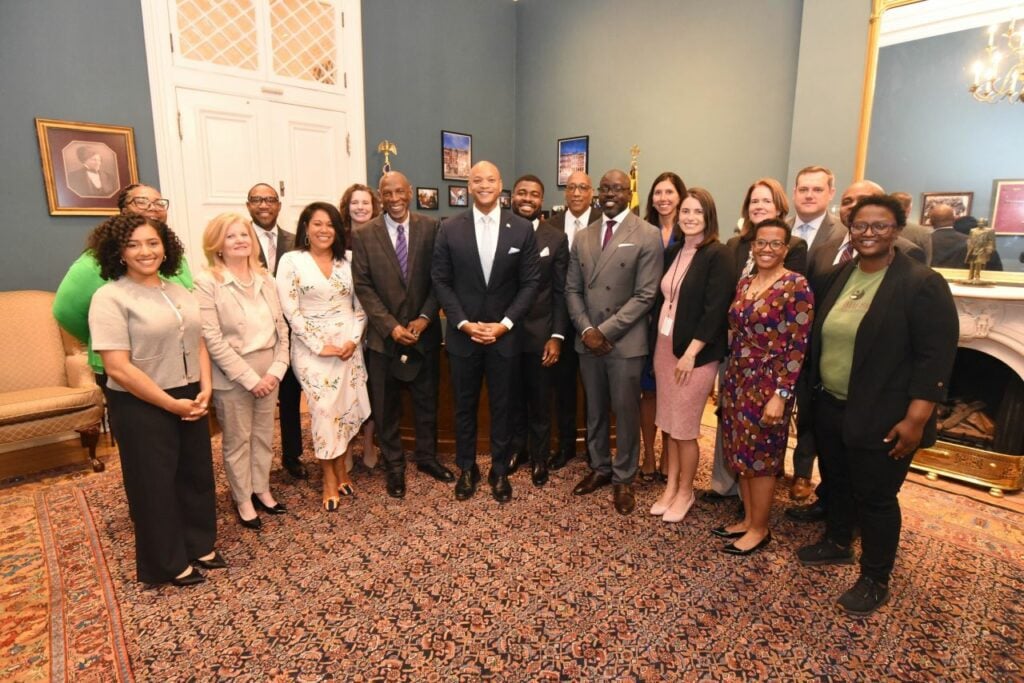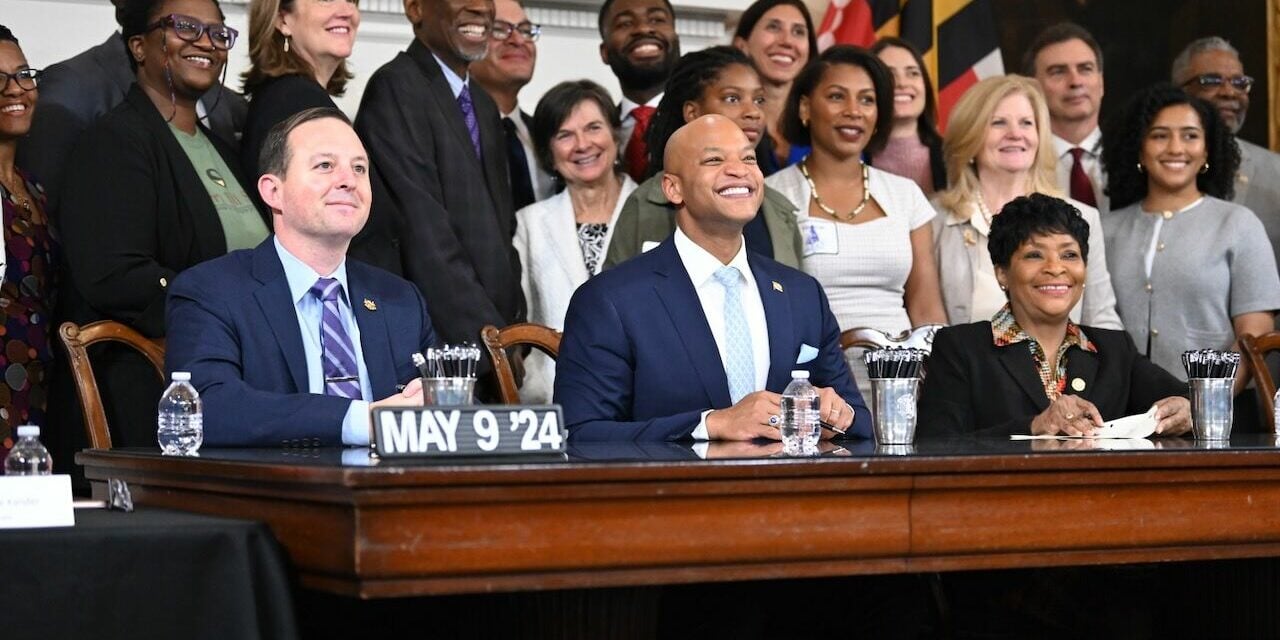In the work to create stronger futures for kids and families, change often feels slow. We lay the groundwork for transformation that will impact generations to come. Patience is a daily practice.
Sometimes, though, we get to celebrate monumental wins — defining successes that pave the way for significant progress. Earlier this month, I was honored to witness one of these moments when I joined Maryland Governor Wes Moore as he signed the ENOUGH Act into law. This legislation is a major milestone toward StriveTogether’s vision of putting 4 million more young people on the path to economic mobility.
The ENOUGH Act will create the conditions for transformation in neighborhoods, regions and across the state. StriveTogether is proud to have supported the crafting of this legislation, and we’re now turning our supports to its implementation alongside our national partners at Purpose Built Communities, Partners for Rural Impact, William Julius Wilson Institute at the Harlem Children’s Zone and Blue Meridian Partners, and local leaders like Cradle to Career Network member Baltimore’s Promise.
For far too many children, zip code limits potential. According to Opportunity Insights, only half of children grow up to earn more than their parents. It’s time to end this cycle by investing in young people and communities, transforming systems to get better, more equitable results.
Through investment, we can build strong civic infrastructure in communities, creating places where children and families can thrive. Civic infrastructure connects leaders, organizations and institutions from across a community — from education, business, health care, housing, philanthropy and more. It creates the relationships, collaboration, goal setting and data sharing needed to increase economic mobility.
The ENOUGH Act will invest in civic infrastructure through community-level, place-based work in neighborhoods across the state, all aimed at ending concentrated child poverty. Poverty looks different in every neighborhood, and we know that those closest to the challenges are also closest to the solutions. The ENOUGH Act supports communities to customize solutions based on their needs and strengths. At StriveTogether, we see this as one of the bill’s key features. In the same way, the StriveTogether Theory of Action™ provides an adaptable road map to changes for communities of all sizes, geographies and more.
We know transformation that’s rooted in the contributions of a place becomes the most lasting and impactful. ENOUGH communities will work with nonprofits, community organizations, institutions and community members to create a localized plan to end poverty.

The legislation provides resources to back this critical work. Maryland’s General Assembly has dedicated $20 million for the first year of this initiative. With this funding, the ENOUGH Act will strengthen systems of early childhood development, education, economic development, public safety and community-based health. The ENOUGH Act provides resources for cradle-to-career partnerships to unite these systems and build civic infrastructure.
This approach represents a stronger way of working together to tackle child poverty, one that we’ve seen make an incredible impact across the StriveTogether Cradle to Career Network. Network member Baltimore’s Promise uses the power of data and collaboration to improve outcomes for youth and their families, centering community expertise. Their support and insights will be critical for implementing the ENOUGH Act across the state.
The signing of this act represents one win that I hope will lead to many more. This legislation sets the standard for other states to join Maryland in making place-based investments —investments that we know are critical to putting more young people on a path to economic mobility. As we learn from what’s working in Maryland, we’ll share insights and support other states to join this work, creating more opportunities for children and families to thrive. Together, we can create a future where zip code does not determine destiny.






